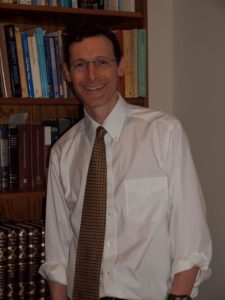Commentary on Parshat Acharei Mot (Leviticus 16:1 – 18:30)
When my pluralistic Jewish school’s 11th- and 12th-grade students visited a nearby Roman Catholic school for our annual “Friends in Faith” program, they finished the icebreakers and the lively Quiz Bowl game, and then they walked towards the chapel for a mid-morning visit and explanation of the Roman Catholic mass by our host school’s priest. As most of the students entered the chapel with their new Roman Catholic friends, who had become animated partners in dialogue, their curiosity was sparked as they looked down at the kneeling bench and up and around at the stations of the cross and the other symbols in that unfamiliar setting. For several students, merely entering the chapel was enough to raise some concerns, and they asked to stay behind in a nearby room. They anticipated that the iconography, the differences in God language, and the quiet, pious atmosphere would feel far from home and perhaps uncomfortable.
As I sat in the last row myself, I realized that although I have visited many churches and witnessed several Roman Catholic, Episcopal and Lutheran masses, the large crucifix with Jesus hanging behind the priest, the golden chalice with wine, the rounded wafers held high and the priest himself in his vestments were reminders that however much we may share with our neighbors, their priesthood has ongoing spiritual and moral authority while our own Jewish priesthood has been defunct for nearly 2,000 years.
Sign up to receive Torah from T’ruah in your inbox each week.
This week’s Torah portion, Acharei Mot, reminds us in Leviticus, Chapter 16, that in ancient times, our Israelite ancestors once relied on the priest for atonement, respecting him for his power before God. The Torah describes the rituals that involve the repeated sprinkling of blood and the ritual of sending a scapegoat out into the wilderness, “to Azazel”, to its death. The death of that goat provides expiation for the communal sins every year on Yom Kippur.
What a contrast to our world today, in which people may confess their sins to strangers on social media while keeping those same sins secret from their families. In today’s world, we don’t flock to a central tabernacle or Temple; our world is decentralized. While today’s rabbis may be the closest thing we have to the ancient priests, some rabbis might be as likely to seek, find and join their congregants at the gym or the JCC as at the synagogue. The biblical sacrifices described in this week’s Torah reading have long since been replaced by prayer, study, acts of chesed (lovingkindness), and by Sunday breakfasts and guest speakers.
I listen to enough podcasts to have an awareness of some emerging deliberately transformational synagogues and thought leaders who are promoting a more inclusive, more color-blind, less binary Judaism. I see it in my students as well: they are tilting away from the rabbinic domains of prayer, piety, and practice and towards the pursuit of social justice and public acts of chesed, including stocking food banks, partnering with people with disabilities, promoting Jewish culture or learning, promoting community-building and engaging with contemporary Israel. Our students are eager not to become more fluent in prayer but to become more fluent in Hebrew and more adept at confronting adversaries who promote the Boycott, Divestment and Sanctions (BDS) movement; they seek to focus on Israel as a peace-seeker, as a “start-up nation” and as a world leader in health care, education, and technology.
This week’s Torah reading fascinates us with the descriptions of the priestly rituals, reminding us of the ancient world, and it also goes on to disturb us with its litany of forbidden sexual relationships in Leviticus, Chapter 18. As the chapter opens, we are told not to mimic the customs of the Israelite neighbors, the Egyptians and the Canaanites. Instead, the Israelites are told to keep God’s commandments and rules — God’s huqim and mishpatim, both the laws that are difficult to understand and the rational laws that make sense. The Israelites are instructed in Leviticus 18:4-5 not only to follow those laws — lalechet ba-hem, but also to live by those laws — ve-hai bahem.
Find more commentaries on Parshat Acharei Mot
Some rabbis understand this to mean that people need to live by those laws, to embrace life, to accept our own imperfection, and to recognize that we don’t want to feel choked by those laws. Survival may require us to follow a different path. If we live by God’s laws and not die a spiritual death, by them, then we can justify coming out of the closet or changing our prayer lives or taking a controversial position based on our conscience despite the implications of going against what we perceive as normative Jewish tradition.
This week’s Torah reading offers us an opportunity to ask about what drives us: Are we more in sync with the priests in Chapter 16, seeking the prestige and power and even perfection that the ancient vestments and rituals provided, including the power to designate and the power to forgive? Or are we more in sync with the audience for Chapter 18, who must decide how to embrace life despite our imperfections and live by God’s commandments, not to die by them? With Passover just behind us, may we all embrace life while savoring the blessings of freedom.
Rabbi Judd Kruger Levingston serves as director of Jewish studies at Jack M. Barrack Hebrew Academy in the Philadelphia area. The author of “Sowing the Seeds of Character: The Moral Education of Adolescents in Public and Private Schools,” he is a dedicated bicycle commuter and is at work on a new research project called “The Moral Case for Play.”


